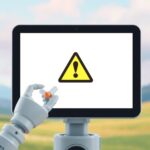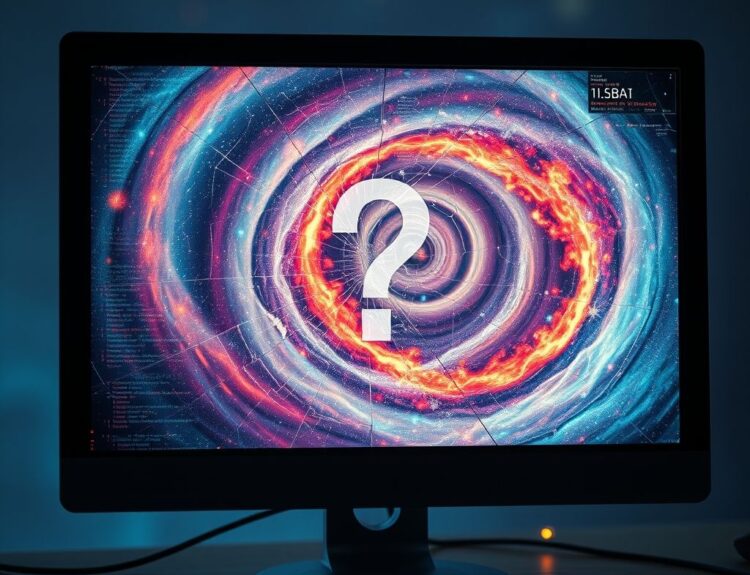Ever felt like explaining your symptoms to a robot just doesn’t cut it? You’re not alone. A recent Oxford study is making waves, and it’s something we need to talk about. It dives into how patients using chatbots for medical assessments might actually end up with worse outcomes compared to sticking with good old-fashioned methods.
The article I stumbled upon, “Just add humans: Oxford medical study underscores the missing link in chatbot testing” on VentureBeat, really hit home. We’re so quick to embrace new tech, but are we truly thinking about the human element in healthcare?
Think about it. A chatbot can analyze symptoms based on an algorithm, but can it really pick up on the subtle cues, the non-verbal signals, that a doctor notices during a consultation? Can it offer reassurance or empathize with your fears? Probably not.
The study highlights a critical point: we can’t just swap out human interaction for lines of code and expect the same level of care. We need to be smarter about how we integrate AI into healthcare.
The Data Speaks Volumes
While the specifics of the Oxford study are crucial, this isn’t an isolated concern. Research consistently shows the importance of the doctor-patient relationship. For example, a study published in PLOS One found that a strong therapeutic relationship is associated with better patient outcomes, regardless of the treatment. https://journals.plos.org/plosone/article?id=10.1371/journal.pone.0000758
Another interesting statistic comes from a 2018 Gallup poll, which revealed that only 54% of Americans trust doctors “a lot.” https://news.gallup.com/poll/245597/americans-trust-medical-profession-remains-high.aspx. Imagine how that trust erodes when the doctor is replaced by an AI!
5 Key Takeaways
- Chatbots are tools, not replacements: They can be helpful for initial screenings or providing basic information, but they shouldn’t replace the expertise of a medical professional.
- The human connection matters: Empathy, trust, and understanding are vital components of healthcare that AI can’t replicate (yet!).
- Testing needs a human touch: We need to rigorously test chatbots with diverse patient populations, including real-world scenarios and human oversight, to ensure safety and effectiveness.
- Beware of over-reliance: Don’t depend solely on chatbot diagnoses. Always seek professional medical advice for accurate assessments and treatment plans.
- It’s about balance: The future of healthcare likely involves AI, but it needs to be carefully integrated in a way that complements, rather than replaces, human interaction.
Ultimately, this Oxford study serves as a reminder that healthcare is about more than just data and algorithms. It’s about caring for people, and that requires a human touch. It is important to note that this is for educational purposes only and does not constitute medical advice. Always consult with a qualified healthcare professional for any health concerns or before making any decisions related to your health or treatment.
FAQs About Chatbots and Healthcare
- Are chatbots safe to use for medical advice? Chatbots can be helpful for basic information but should not replace a doctor’s advice. Always consult a medical professional for diagnosis and treatment.
- Can chatbots diagnose medical conditions accurately? While they can analyze symptoms, chatbots are not always accurate and may miss important details that a doctor would catch.
- What are the benefits of using medical chatbots? They can provide quick access to information, screen for potential conditions, and offer convenience.
- What are the risks of relying on chatbots for healthcare? Misdiagnosis, delayed treatment, and lack of personalized care are potential risks.
- How can I ensure I’m getting accurate information from a medical chatbot? Cross-reference the information with reputable sources like medical websites and consult with a doctor.
- Are there any regulations for medical chatbots? Regulations vary, but generally, chatbots should disclose their limitations and not claim to replace medical professionals.
- Can chatbots replace doctors in the future? It’s unlikely they will fully replace doctors, but they may become more integrated into healthcare systems as support tools.
- How are chatbots tested for accuracy and safety? Testing involves evaluating their diagnostic accuracy, safety, and user-friendliness, often with human oversight.
- What should I do if a chatbot gives me incorrect medical advice? Consult a doctor immediately and report the incident to the chatbot provider.
- Are medical chatbots available in Cameroon? While availability may vary, it’s always best to ask your healthcare provider about telehealth options near you.








